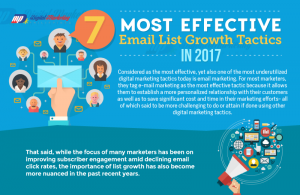— May 6, 2019

DiggityMarketing / Pixabay
The importance of search engine optimization (SEO) is widely recognized, yet all too often it’s not as high of a priority for B2B organizations, which is a bit mind-boggling when you consider the following statistics:
- 93% of online experiences begin with a search engine
- 81% of people perform some type of online research before making a large purchase
- 75% of people never scroll past the first page of search engines
B2B marketers are making SEO a top priority, because it’s a proven way of attracting more visitors to their websites and raising the visibility of their organization. SEO is also an effective tool for increasing overall brand awareness, generating inbound leads, reputation management and improving the influence of one’s brand.
Assess your SEO efforts against these best practices to improve your organic search rankings and achieve objectives like those noted above:
Create high-quality content
With content still being one of Google’s top ranking signals, is the content you’re producing truly meeting the needs of your audience or answering real-world questions for the personas that you are trying to attract? Surprisingly, this question is not deeply considered and can result in content that is company-centric and not focused on your audience.
Produce content that truly educates or informs your audience. Provide practical, actionable tips and insights that address the pain points of your personas. Check in with your Sales team to discover what product- and industry-related questions are being asked by prospects and customers, and consider creating pieces that answers those questions.
When writing content such as blog posts and articles, choose 1-2 keywords or a phrase to focus on. You can choose this keyword by performing a few of your own searches, and seeing what other topics or content is in the results. Brainstorming and doing the proper research for your topic is always the first step for high-quality content.
Build a backlink strategy
According to top SEO industry studies, backlinks are still considered an important ranking factor for an SEO strategy. Backlinks are created when an individual or entity outside of your organization creates a weblink back to your site.
As Google’s search algorithms continue to get smarter, they have learned to weed out bad links from the good ones. More backlinks from credible external sources directing traffic to your site increases your page authority and credibility with search engines, which results in more (and new) visitors engaging with your website.
Tips for developing an effective backlink strategy:
- Produce valuable content
- Consider creating content that contains 1st party data points (i.e. a benchmark or industry report), an industry-related infographic or a long-form article that references key influencers
- Have a strong website architecture
- Your website should be easy to follow and navigable for your visitors
- Use social media channels to help amplify your content
- Reach out to trusted publications for guest posting and content syndication opportunities
- Develop link-sharing relationships with other content publishers and key organizations
Optimize for mobile
As Google continues to place a higher emphasis on mobile devices, having a mobile-friendly website is critical. Mobile-friendly pages will soon become the default for Google search rankings and have already surpassed desktop browsing. Use Google’s PageSpeed Insights to get an idea of your website’s mobile and desktop load times and optimize accordingly.
Test your website’s user experience on various devices (iPhone, Android, tablets, etc.) to see how your pages appear. Many website building platforms have mobile viewing options, it is a good idea to check this periodically as you build, update or implement changes to your website.
Determine whether approaches like Google’s AMP (accelerated mobile pages) make sense for you. Content optimized for AMPs are designed to improve load times on mobile devices.
Take care of technical SEO
Ensure you have access to the talents necessary to implement and check the technical elements that are necessary for SEO success. Ensure your website can be easily crawled by search engines. Duplicate content, or the same exact content on too many of your website pages creates issues getting the pages indexed.
Make sure that your DNS settings are configured properly. DNS stands for Domain Name Service (or Servers). Default settings are already configured for you when you purchase your domain name from a hosting provider. Your IT team will be able to provide you with the best options for your web needs.
Secure your site
While it is unclear whether Google’s algorithms are favoring HTTPS websites over non-secure HTTP sites, the company recently announced that web forms on pages over HTTP will be flagged as ‘not secure’ which may cause your audience to leave your pages. Migrating to HTTPS should be strongly considered by your business if you have not already done so.
Benefits of HTTPS websites:
- Google will identify your website as ‘secure’
- HTTPS websites provide more trust for your visitors (especially for purchases)
- Google is more likely to rank HTTPS pages higher than HTTP pages providing a slight boost in organic search
SEO is an ongoing process and is not something you should ‘set and forget’. Consider these best practices and use analytics to monitor and track your website’s performance.
Digital & Social Articles on Business 2 Community
(62)
Report Post






